Search Results
Search
Filter results
Advanced Filters
Your search returned 562 Solutions
-
Training the teachers and their trainers in Inclusive Education
A key part of the programme is the provision of training courses on Inclusive Education at the Armenian State Pedagogic University, where there are two compulsory and two optional courses on Inclusive Education. 200 mainstream schools are supported to become inclusive and some 5,000 teachers from these schools are beiing trained.
Bridge of Hope, Armenia -
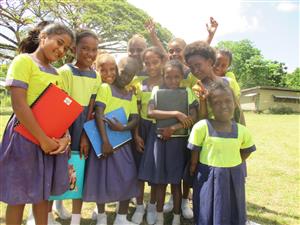
Developing indicators for Inclusive Education in the Pacific region
"Pacific INDIE" was developed based on a comprehensive methodology, including surveys with the Ministerial representatives from 14 Pacific countries, and focus group discussions in four selected countries (Fiji, Samoa, Solomon Islands, and Vanuatu). The indicators were then refined following review by an international reference group.
Monash University, Australia -
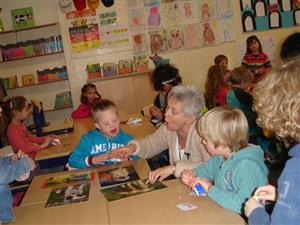
Using courts and litigation for the right to Inclusive Education
In1school addresses the right to Inclusive Education. Project members are collecting cases and data on educational exclusion and team up with lawyers to develop litigation strategies. They also communicate findings by media and support parents who are struggling to enrol or keep their children in regular education.
In1school, Netherlands -
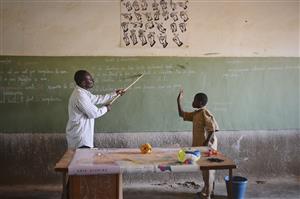
Multi-stakeholder approach towards Inclusive Education in Burkina Faso
A multi-stakeholder approach is creating an inclusive environment whereby children with disabilities and other vulnerable children can attend a school close to their hometown. The project in the community of Garango is a pilot project that will serve as a model for the National Strategy of Inclusive Education in Burkina Faso.
OCADES Caritas Burkina, Burkina Faso -
A school offering free high-quality bilingual education for deaf children
Instituto de la Sordera (Indesor), Chile: NGO providing free education to deaf students, including vocational, primary, and secondary levels. Since 2020, educated about 100 students annually and pioneered 'reverse inclusion' for hearing children.
Bilingual Intercultural Education Project (PEIB), Chile -
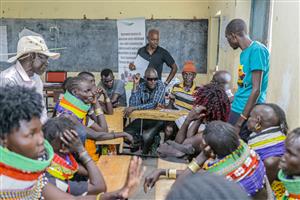
Ensure inclusive early childhood care and education in refugee camps and emergencies
CBM and Waldorf Kakuma Project, Kenya: Runs an inclusive education project in Turkana County for children with disabilities. Provides learning materials and teacher training. From 2021 to 2023, supported close to 2,000 children.
CBM Turkana Inclusive Education Project, Kenya -
Creating a role model for Tanzania`s Inclusive Education policy
The project seeks to model Tanzania’s National Strategy on Inclusive Education by initiating systematic changes in education in three districts. These changes will influence school management, teacher training, and pupil support, as well as raise awareness and ensure that families and the communities are involved.
ADD International - Action on Disability and Development, Tanzania -
A training course for teachers on how to use the arts to make their education practices inclusive
Mais Diferenças' Inclusive Education Laboratory, Brazil: Specializes in inclusive art-based teaching methods for public school educators in São Paulo. From 2019 to 2023, trained 300 educators from 233 schools across five editions.
Inclusive Education Laboratory, Brazil -
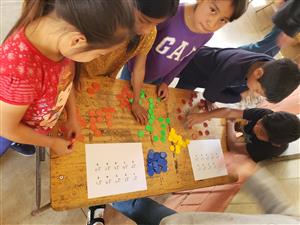
Empowering inclusive education with ICT integration
ADISA and CBM's Inclusive Education Programme, Guatemala: Promotes inclusive education through Universal Design for Learning (UDL). Between 2022 and 2023, trained 500 teachers and 400 parents, benefiting 800 children in ten schools.
Promoting inclusive education in Guatemala through the development of a Universal Design for Learning (UDL), Guatemala -
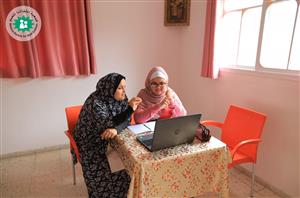
Crisis-resilient education for children with disabilities in Palestine
Atfaluna Society for Deaf Children (ASDC), Palestine: Implements an EU-funded project for education during crises. From 2018 to 2023, supported over 800 children with disabilities in schools and trained 400 teachers and officials.
Developing an inclusive education environment for children with and without disabilities in the Gaza Strip, Palestine
- Page 1
- Page 2
- Page 3
- Page 4
- Page 5
- Page 6
- Page 7
- Page 8
- Page 9
- Page 10
- Page 11
- Page 12
- Page 13
- Page 14
- Page 15
- Page 16
- Page 17
- Page 18
- Page 19
- Page 20
- Page 21
- Page 22
- Page 23
- Page 24
- Page 25
- Page 26
- Page 27
- Page 28
- Page 29
- Page 30
- Page 31
- Page 32
- Page 33
- Page 34
- Page 35
- Page 36
- Page 37
- Page 38
- Page 39
- Page 40
- Page 41
- Page 42
- Page 43
- Page 44
- Page 45
- Page 46
- Page 47
- Page 48
- Page 49
- Page 50
- Page 51
- Page 52
- Page 53
- Page 54
- Page 55
- Page 56
- Page 57